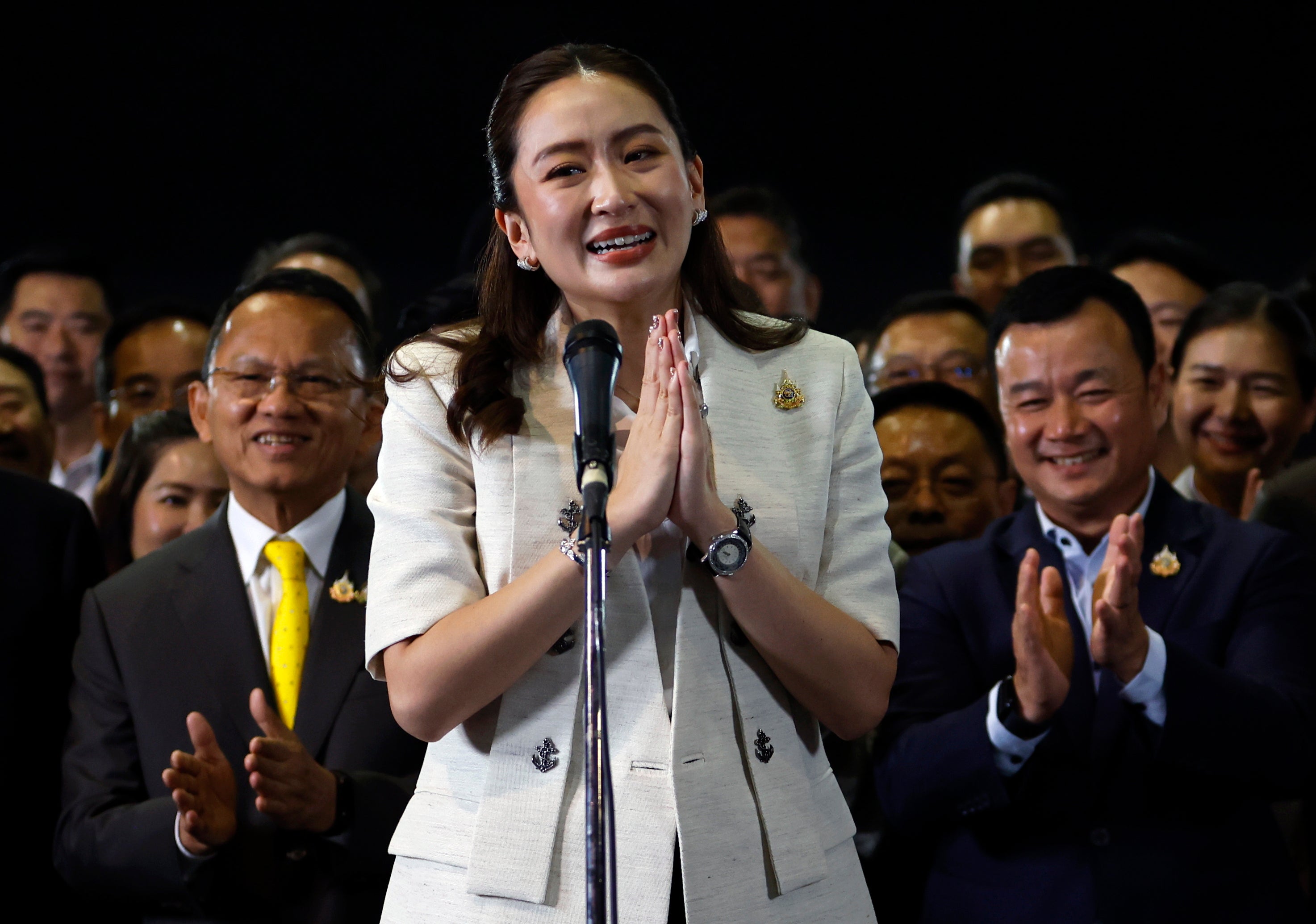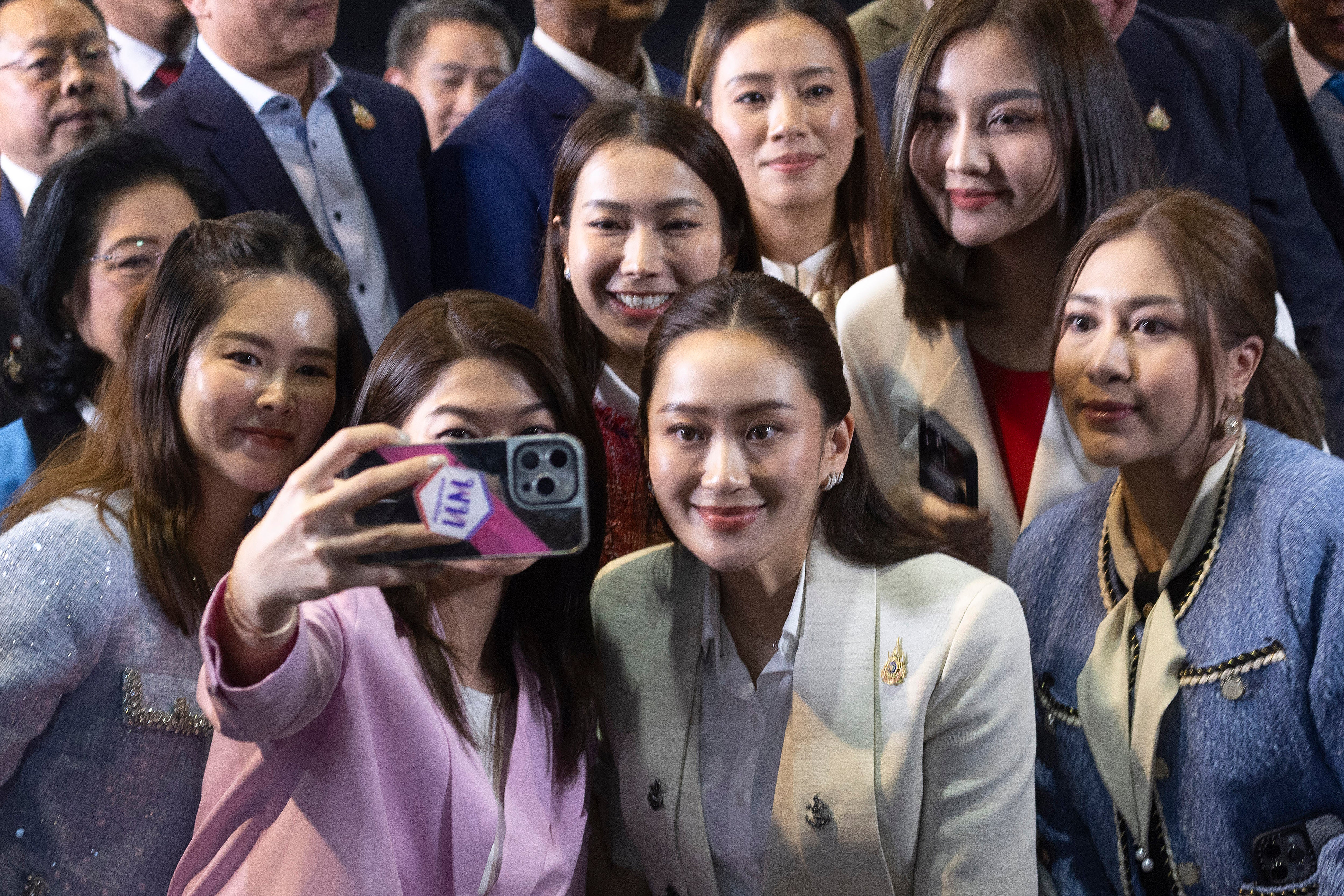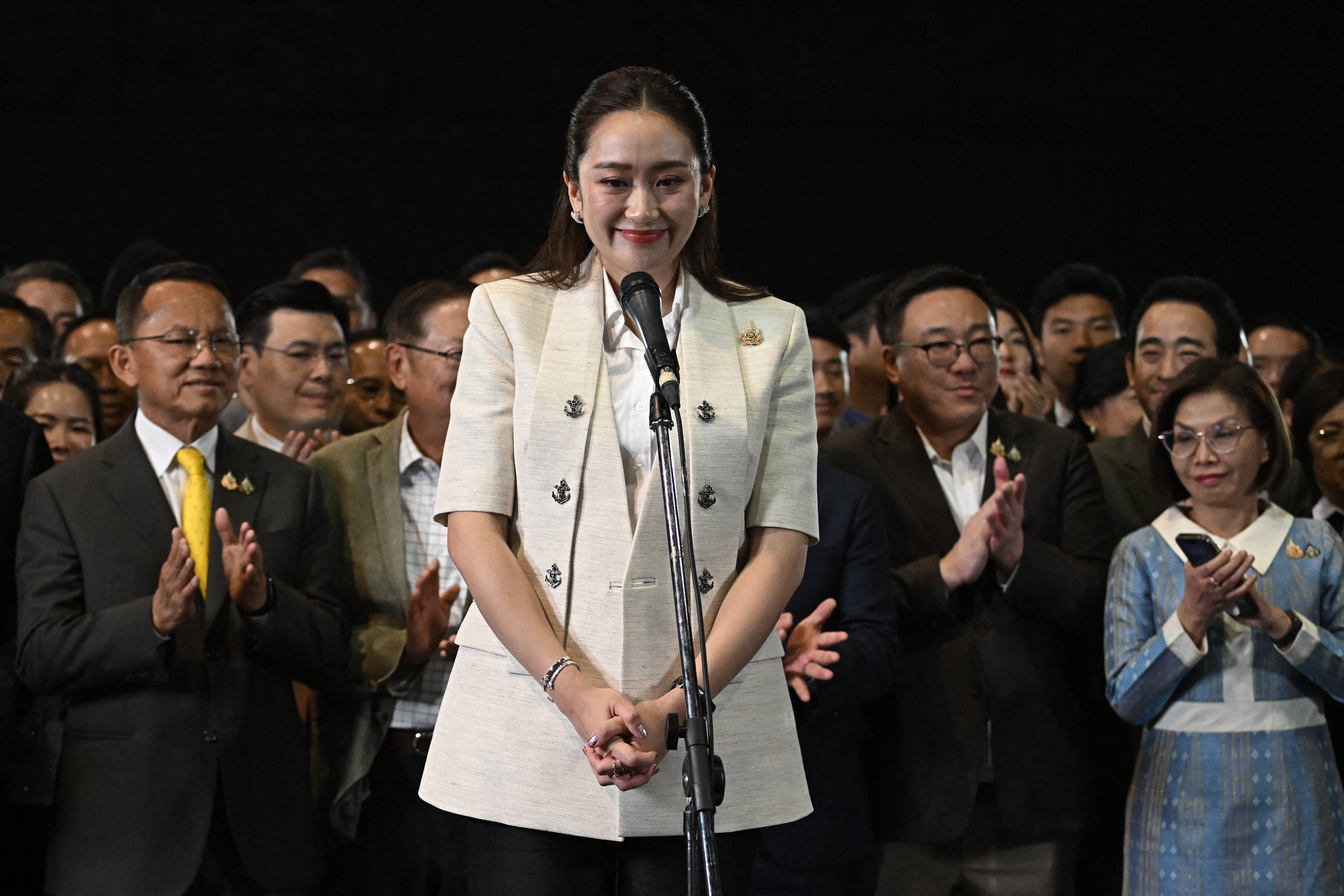Paetongtarn Shinawatra becomes Thailand’s youngest PM after winning parliament vote
Paetongtarn Shinawatra, 37, is the daughter of former Thai PM Thaksin Shinawatra

Paetongtarn Shinawatra was appointed as Thailand’s youngest ever prime minister on Friday – a remarkable moment for the political dynasty founded by her billionaire father who was ousted by a military coup in 2006.
The 37-year-old, who is the daughter of former PM Thaksin Shinawatra and head of the ruling Pheu Thai party, won the support of nearly two-thirds of the country’s parliament.
“I really hope that I can make people feel confident, that we can build opportunity and quality of life,” she told a news conference after the vote, appearing to be overwhelmed. “I hope that I can do my best to make the country go forward.”
Ms Paetongtarn is set to immediately face challenges on multiple fronts, with Thailand’s economy floundering and the popularity of her party dwindling, having yet to deliver on its flagship cash handout programme worth 500bn baht ($14.25bn).

It comes just days after Srettha Thavisin was removed as PM by a constitutional court’s order, after he briefly appointed a lawyer convicted of bribery to his cabinet in April.
Thaksin Shinawatra, who was last year convicted of corruption and defaming the monarchy, was sentenced to eight years in prison but was released on parole in February.
Ms Paetongtarn will become Thailand’s second woman prime minister and the country’s third leader from the Shinawatra family if the parliament vote approves her.
She has acknowledged her family ties in Thailand’s leadership legacy and insisted that she is not just her father’s proxy. “It’s not the shadow of my dad. I am my dad’s daughter, always and forever, but I have my own decisions,” she had said on the campaign trail.
Her public entry into politics came in 2021 when the Pheu Thai party announced she would lead an inclusion advisory committee. She was appointed as leader of Pheu Thai last year, after she was named one of its three prime ministerial candidates ahead of the polls.

Political experts have said Thaksin’s shadow is too big to be dismissed and she will face hardships with her father continuing to call political shots for the party.
“Thaksin was a political force to reckon with, but he was also a liability,” said Petra Alderman, a political research fellow at the University of Birmingham. “He has a tendency to overplay his political hand, so serving in his shadow has never been easy.”
She added that public support is not the only factor that will determine the course of Ms Paetongtarn’s premiership.
“Who gets to govern in Thailand and for how long are questions that are often answered by unelected and unaccountable watchdog institutions, [such as] the Election Commission of Thailand and the constitutional court, or military coups,” she said.
Pheu Thai and its predecessors linked to Thaksin won all national elections since 2001, with core populist policies pledging to solve economic problems and bridge income equality, until it lost to the reformist Move Forward in 2023.
It was given a chance to form a government, however, after Move Forward was blocked from taking power by the previous Senate, a military appointed body.
Move Forward was excluded from the coalition by Pheu Thai, which went on to join with parties affiliated with the military government that previously ousted it in the 2006 coup.
When Thaksin returned to Thailand from exile last August, Ms Paetongtarn was the most prominent among the family members who appeared with him.
Speculation that she would take a cabinet position proved unfounded. Instead, she took on the role of promoting Thailand's “soft power”, highlighting such national selling points as food, culture, sports and the Pride parade in Bangkok.
Her political position strengthened significantly last October when she was chosen as leader of Pheu Thai. The move reasserted the Shinawatra family’s overt domination of the party and made a future bid for the post of prime minister almost inevitable.
As it turned out, that chance came sooner rather than later.
Reuters and Associated Press contributed to this report.
Join our commenting forum
Join thought-provoking conversations, follow other Independent readers and see their replies
Comments
Bookmark popover
Removed from bookmarks